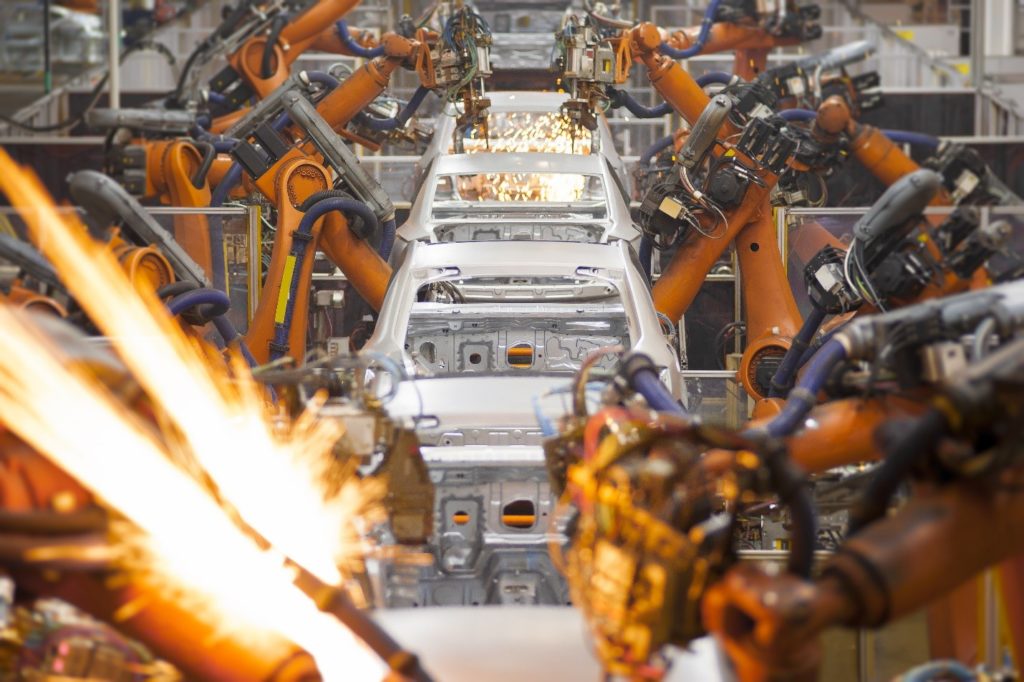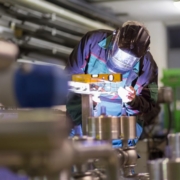Translation Services in Manufacturing
As the world develops, so do the varying industries within it. The evolution of architecture, hardware and technology are important alongside the world’s growth, but what’s outright necessary, is the existence of a manufacturing industry that can be universal. Of what use would the end products of this industry be if they weren’t able to be easily accessed and enjoyed around the globe? Being handled by not just the town of the factory that created it, or even the country, instead, someone on the other side of the planet who could read the instructions of their product, or just as importantly help in its creation. This is where Janus Worldwide comes into the picture. For over twenty years we have served in localization, having a hand in any industry ranging from Video Games, to Legal, to Manufacturing. Though, if twenty years of experience wasn’t enough credit to our long-lasting skill, our three hundred in-house employees and over two and half thousand linguists around the world surely will be. The USA, Russia, Germany, America, China, Argentina and the United Kingdom are just a handful of countries that Janus Worldwide operates in, showing that we’ve got a firm hand in the market from whichever country a customer is based in.
What is the Manufacturing Industry?
This is a very important question to bear in mind when wondering what type of translation tasks we carry out at Janus on behalf of manufacturing companies and indeed where we specialize. In broad terms, when you think of the products that come out of the manufacturing industry, you can think of anything that is assembled. Factories, machinery, automation that runs smoothly to provide the world with the products for our households, businesses, cities and streets. The manufacturing industry does this in a handful of ways, but in definition, it is the process of creating varied goods from raw materials using that of machinery or labour, which are then distributed for use or sale.
This process generally requires hundreds of employees, each tending to separate areas of the facility. Some examples include: maintaining equipment, running heavy machinery, keeping track of health and safety regulations and checking the products’ quality throughout assembly, as well as contract agreements. These products range from televisions and mobile phones, to automobiles, semiconductors and clothing.
Due to such high demand for everything on even the small list above, it’s no surprise that the manufacturing industry is one of a global scale. If we look into some statistics from World Bank Group, in 2014, China’s manufacturing industry alone produced an output of nearly four trillion US dollars, while America and Japan trailed behind with still an impressive two trillion and eight hundred billion respectively. In light of such high monetary output by only three countries of the world, it’s fair to say that companies like Janus Worldwide are necessary in the manufacturing industry, be that for documentation, training or conference translations.
How Does Localization fit into Manufacturing?
When you see the numbers written down, it’s no wonder why localization is so important to the manufacturing industry. Firstly, without even considering the expansion of a company into countries outside their original region, we must take manufacturing at face value. Factories, and other large working facilities are guaranteed to bring in hundreds of positions for locals. However, due to diversity, not all of these applicants will be speakers of the native language, or, they may be used to different rules and regulations. This is just one tiny way in which localization companies such as Janus Worldwide can help make the industry a little smoother, for example, having documentation in multiple languages, or staff members who are multi-lingual will increase the flow of communication substantially. In an industry as dangerous and specific as manufacturing, communication is one of, if not the most important aspect.
Now we can look at the manufacturing industry on a bigger scale, one that leaves the company’s native country, and moves across the globe. If a business were to begin in America, for example, and throughout their life-cycle they culminated a large audience in Asian, or European markets, they may feel it would be beneficial to develop manufacturing facilities closer to those audiences. This kind of expansion is important, and often very lucrative; however, it isn’t always simple for obvious reasons. Reasons such as the fact that countries in Asia and Europe are not always native English speakers, and therefore the company would require help in regard to localization, making sure communication is maintained during the jump to a different region.
Though basic translation of words is a large part of the localization industry, companies such as Janus Worldwide tend to go much further into the project. For example, working in: translations of technical and legal documentation, catalogues, manuals and instructions. As well as also looking closely into safety and user matters, such as e-learning sources, online support and staff training. If we look even further into the production line, we see there are also matters of distribution, in regard to transport, material specification and sales literature. These are just to list a few, showcasing that localization is far more than just translation – it’s a matter of communication between varied parties of the same goal, but a different language.
What Janus can do for you?
In essence, Janus Worldwide are communication, we are the interaction and understanding between differing languages that otherwise share the same intent, providing exceptional linguistic services. Our manufacturing clients have varying needs, requiring up to eighty Worldwide languages, with products ranging from chemical supply, to semi-conductor fabrication, to a wide-array of testing facilities. Due to this experience, Janus is able to understand and tackle complex issues of the industry, developing road maps that will help your brand launch and develop as it reaches new markets around the world.
Janus Worldwide is just as, if not more meticulous in its approach to work as its clients. We are adamant that all work we produce, be that translation, communication, or anything associated, are supplied to the client in a quick manner with a finish of high quality that exceeds all expectation. How do we do this? With focus, time and concern. We make sure that all specifics of a project are understood by all parties involved before even beginning the work. Then once everyone is aware of the process, we start, making sure to stick to the rigorous standards of the ISO 9001:2008 certified processes, thus confirming consistent and reliable results.
Janus makes the complex idea of a multiple language job seem like nothing. With our exceptional project and vendor management staff at hand, we make it possible to deliver several languages simultaneously,
Making sure the client’s demands are met not only quickly, but clearly, so that everyone involved is kept in the know. And to ease your mind just a bit more, there are no hidden risks or fees associated with Janus Worldwide, our workflow is transparent, delivering all around the world, on-time and on-budget.

The Importance of Localization in Manufacturing
We’ve discussed the what, the how and the why, but now we can look into the importance of localization. Communication comes first in this matter, as it is the reason Translation and Localization companies such as Janus Worldwide do what we do, to allow workers of different languages to collaborate towards a larger goal at hand. As a whole, it doesn’t matter what is being created, but what does matter is how it is made. An environment where no one can understand each other, or the shared goal, is an environment where workflow will be poor, morale will be low, and accidents will happen, and that’s what Janus works to prevent.
This brings us to the second point, accidents. This is where translation, particularly in regard to text, becomes very important. As aforementioned, Janus translate many technical documents, technical diagrams, health and safety guidelines, staff awareness manuals and more. We ensure the piece of work is understandable and correct in whichever language it is assigned to.To achieve overall safety within manufacturing and protocols, companies must ensure that they have their translations and safety explanations accurately and carefully localized. Without the ability to read the fine details of a machine, automation or piece of heavy equipment, no one would be safe in a manufacturing facility. In addition, when there is an accident, if the protocol for said accident is not understood, then it will only complicate issues.
Finally, from planning, to assembly, to testing and distribution, Janus Worldwide are there every step of the way to help motivate fluidity of work through communication. Our job is to make sure everyone is on the same page, understanding what is going on, and performing as an all-round unit in what a company is working towards and looking to achieve.






